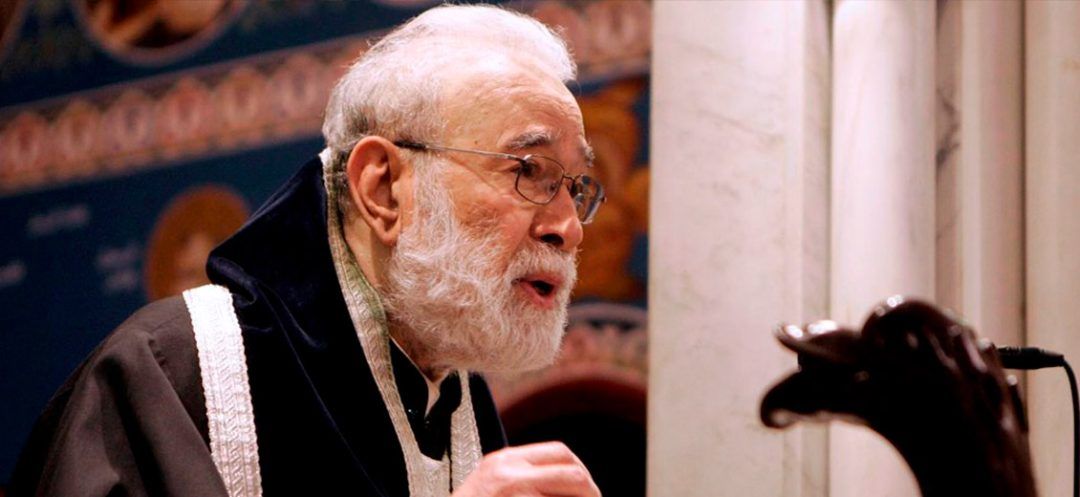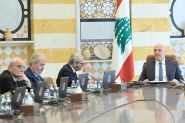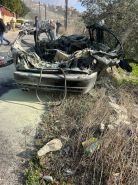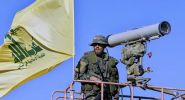
Greek Orthodox Archbishop of Beirut Elias Audi wondered “what the Lebanese officials are waiting for,” in reference to the collapse of the country.
“Do they realize, all of them—representatives, government, and leaders—that if the country disappears, there will be nothing left for them to rule, no one to represent, and no one to lead? There will be no positions to compete for and no chairs to vie for,” he said.
Audi considered that Lebanese officials “do not hear the cries of the people nor see the misery that most citizens of this country have reached.”
In his Sunday sermon, he stated that “years have passed since the citizens' uprising, the explosion in the capital, and the collapse of the country, add to it the end of the term of the previous parliament and president, and new representatives were elected, yet they neither fulfilled their constitutional duties nor has the government implemented a rescue plan.”
Audi recalled “the torch of freedom,” the late journalist Ghassan Tueni, as a rebel against injustice, ignorance, fanaticism, polluted thinking and moral decay, and a defender of Lebanon. Tueni proclaimed, “There is no life for Lebanon and no future for coexistence without democracy. Sovereignty, like independence, is built from within and is not taken from the outside by borrowed security, which has failed, let alone by borrowed defense.”
“If he were alive, he would be the first to reject the breach of the constitution, the obstruction of presidential elections, the violation of the country, and the rights of the people that we are experiencing,” Audi said.
Audi said that “blindness in our days afflicts many of those who have sight, especially those who cling to the superficial and external appearances of faith.” He prayed that the vision of people, especially our officials, be enlightened, “so they may recognize the right path they must take to save the country. The officials, leaders, and heads of Lebanon fit the Lord’s saying: 'For they have eyes but do not see, ears but do not hear, nor do they understand.'”
“Do they realize, all of them—representatives, government, and leaders—that if the country disappears, there will be nothing left for them to rule, no one to represent, and no one to lead? There will be no positions to compete for and no chairs to vie for,” he said.
Audi considered that Lebanese officials “do not hear the cries of the people nor see the misery that most citizens of this country have reached.”
In his Sunday sermon, he stated that “years have passed since the citizens' uprising, the explosion in the capital, and the collapse of the country, add to it the end of the term of the previous parliament and president, and new representatives were elected, yet they neither fulfilled their constitutional duties nor has the government implemented a rescue plan.”
Audi recalled “the torch of freedom,” the late journalist Ghassan Tueni, as a rebel against injustice, ignorance, fanaticism, polluted thinking and moral decay, and a defender of Lebanon. Tueni proclaimed, “There is no life for Lebanon and no future for coexistence without democracy. Sovereignty, like independence, is built from within and is not taken from the outside by borrowed security, which has failed, let alone by borrowed defense.”
“If he were alive, he would be the first to reject the breach of the constitution, the obstruction of presidential elections, the violation of the country, and the rights of the people that we are experiencing,” Audi said.
Audi said that “blindness in our days afflicts many of those who have sight, especially those who cling to the superficial and external appearances of faith.” He prayed that the vision of people, especially our officials, be enlightened, “so they may recognize the right path they must take to save the country. The officials, leaders, and heads of Lebanon fit the Lord’s saying: 'For they have eyes but do not see, ears but do not hear, nor do they understand.'”
Read more



Comments